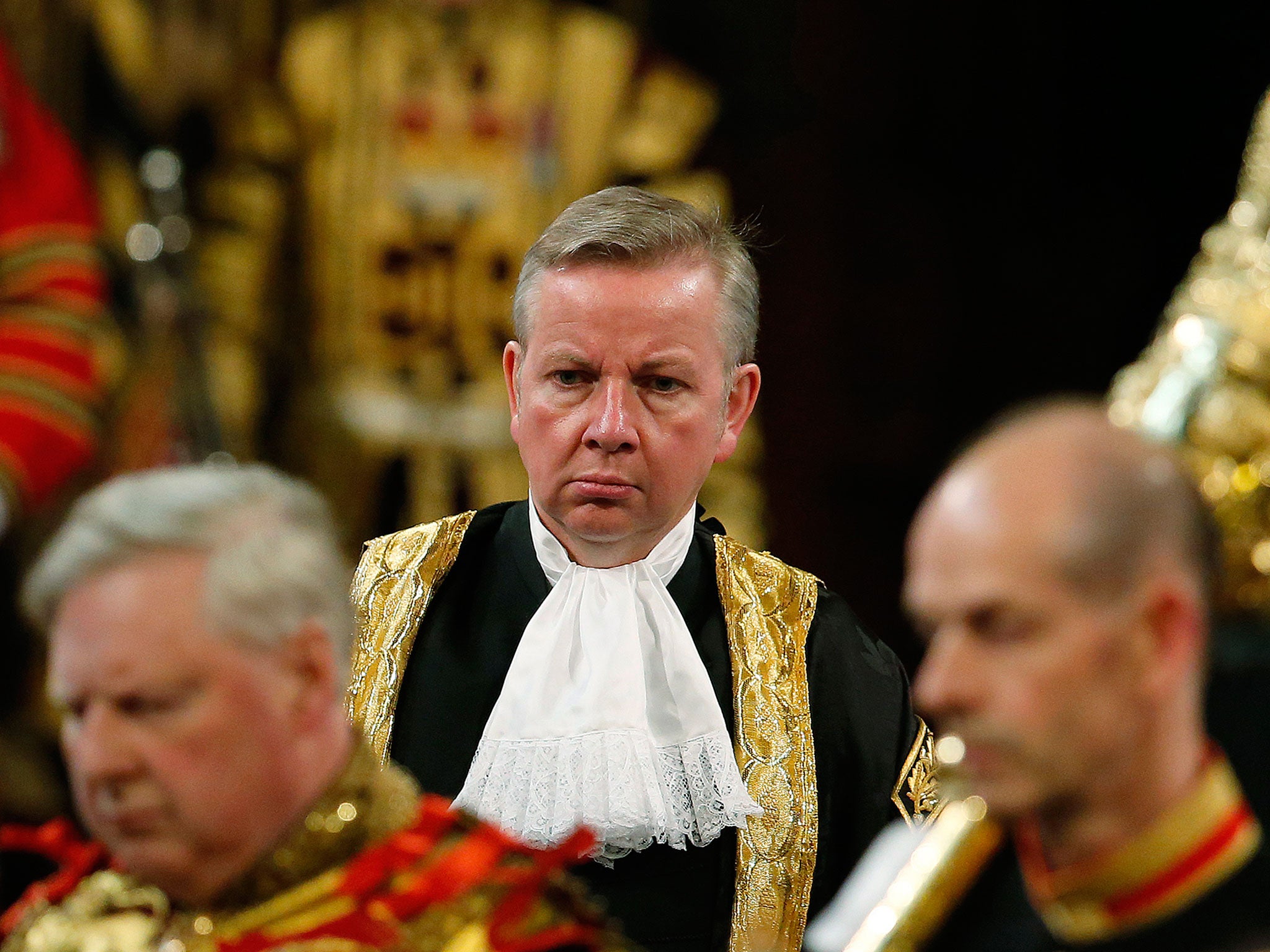Queen's Speech 2015: Plan for British Bill of Rights put on the back burner
The legislation for a new Bill of Rights will not be tabled before midway through next year at the earliest

Your support helps us to tell the story
From reproductive rights to climate change to Big Tech, The Independent is on the ground when the story is developing. Whether it's investigating the financials of Elon Musk's pro-Trump PAC or producing our latest documentary, 'The A Word', which shines a light on the American women fighting for reproductive rights, we know how important it is to parse out the facts from the messaging.
At such a critical moment in US history, we need reporters on the ground. Your donation allows us to keep sending journalists to speak to both sides of the story.
The Independent is trusted by Americans across the entire political spectrum. And unlike many other quality news outlets, we choose not to lock Americans out of our reporting and analysis with paywalls. We believe quality journalism should be available to everyone, paid for by those who can afford it.
Your support makes all the difference.Two weeks before the election David Cameron’s aides briefed journalists on what a Conservative-only government would do during its first 100 days – however unlikely that prospect seemed at the time. And the Prime Minister has pretty much kept to his word – with one notable exception.
When Her Majesty addressed assembled peers and MPs in the House of Lords just 12 words of her speech were dedicated to the key Conservative election pledge to repeal the Human Rights Acts and bring in a British Bill of Rights.
And those words rather suggested the controversial plans were now very much on the back burner. Far from British Bill of Rights being introduced among the 24 bills detailed, the plans have now fallen into the category of “bring forward proposals”.
In reality that means the legislation for a new Bill of Rights will not be tabled before midway through next year at the earliest. And even then it is far from clear that any Bill will become law given the strength of opposition to the principle of the legislation among Conservative luminaries including the former Attorney General Dominic Grieve, the former Justice Secretary Ken Clarke and former shadow Home Secretary David Davis.
Government sources said that it became very quickly apparent when Michael Gove arrived in the Department of Justice that there was no hope of presenting a fully formed Bill of Rights in time to be debated in this first session of Parliament.
Although his predecessor Chris Grayling had started work on the issue before the election, because of the Coalition, this was done outside of the Department of Justice by a Tory-supporting lawyer and two researchers from Conservative Campaign Headquarters. Gove, perhaps diplomatically, is understood to have described what was produced as a "helpful starting point" however everyone in the department conceded it not ready to be introduced into the Commons.
The difficulty is not so much drawing up a new Bill of Rights but working out how this interacts with Britain’s obligations under the Convention of Human Rights and through it the European Court of Human Rights in Strasbourg.
The previous Tory policy had suggested that the new law would “break the formal link” between the UK and the ECHR. But that is almost certainly impossible without withdrawing from the Convention completely – something a large number of Tories don’t want and would badly damage Britain’s standing in the world.
So Mr Gove now intends to go back to the drawing board and try and square the circle between those on the right who blame Strasbourg and the Human Rights Acts for much of what they don’t like about modern society and those who know rather more about jurisprudence.
The plan is to produce a consultation document setting out a range of options for reform before the end of this year before publishing a draft Bill in the middle of next year.
In the meantime Mr Gove will try and use his considerable powers of persuasion to convince those on both sides of the argument that enough of their concerns will be assuaged to get the legislation through what will be an increasingly rebellious Parliament.
That is a Herculean challenge – in fact even one of his own former advisers has put his chances of achieving meaningful reform at less than 5 per cent. That may prove to be optimistic.
Join our commenting forum
Join thought-provoking conversations, follow other Independent readers and see their replies
Comments